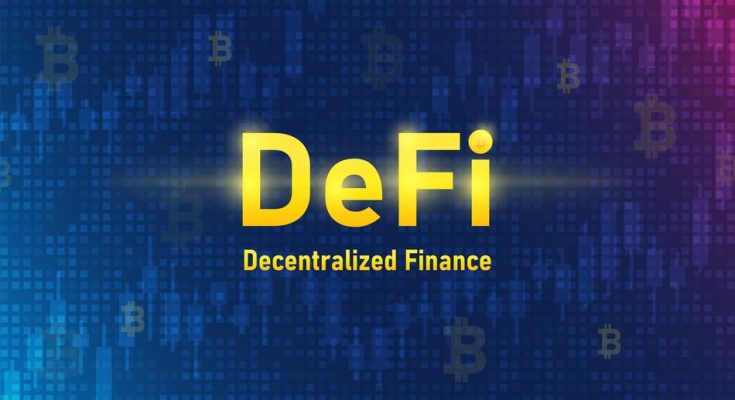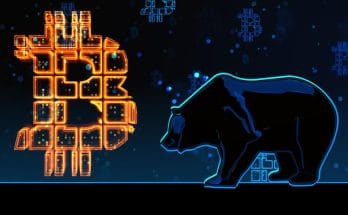Decentralized finance DeFi systems are revolutionizing finance. This revolutionary financial solution has developed from technical advances and cryptocurrency appeal. DeFi uses blockchain and smart contracts to revolutionize banking and finance.
Unraveling The Mechanics Of Defi
DeFi includes various financial services and apps that use decentralized networks without banks or brokerages. Users may lend, borrow , trade and manage assets on DeFi systems in a trustless and permissionless environment. Blockchain based intelligent contracts automate processes and provide transparency, security and efficiency.
Accessibility is an essential aspect of DeFi systems. DeFi platforms are available to anybody with an internet connection and a suitable device unlike conventional banking systems that restrict people based on geography or socioeconomic status. This inclusion allows everyone globally, especially those disadvantaged by traditional banking institutions, to engage in global finance and receive financial services.
Navigating The Defi Landscape
DeFi is extensive and continually changing with new platforms and protocols. Navigating this changing ecology requires understanding the types of DeFi platforms.
Decentralized Exchanges Dexs
DEXs enable peer to peer digital asset trading without intermediaries and they are the foundation of DeFi. These services let consumers directly swap bitcoins avoiding counterparty risk and giving them more asset control. Popular DEXs like Uniswap SushiSwap and PancakeSwap have different features and liquidity pools.
Lending And Borrowing Platforms
Users may lend digital assets to earn interest or borrow assets by collateralizing them on DeFi. These technologies automate loan arrangements using smart contracts for security and efficiency. Defi lending protocols like Compound Aave and MakerDAO let users generate passive income or access liquidity without intermediaries.
Yield Farming And Liquidity Mining
Yield farming and liquidity mining involve offering liquidity to DeFi systems in exchange for tokens or governance rights. Staking assets in liquidity pools lets users earn rewards and administer decentralized networks. These activities involve risks such as temporary loss and intelligent contract weaknesses requiring rigorous investigation and risk management.
DeFi includes various financial services and apps that use decentralized networks without banks or brokerages. Users may lend, borrow , trade and manage assets on DeFi systems in a trustless and permissionless environment. Blockchain based intelligent contracts automate processes and provide transparency, security and efficiency.
Accessibility is an essential aspect of DeFi systems. DeFi platforms are available to anybody with an internet connection and a suitable device unlike conventional banking systems that restrict people based on geography or socioeconomic status. This inclusion allows everyone globally, especially those disadvantaged by traditional banking institutions, to engage in global finance and receive financial services.
Decentralized Finance Derivatives
In recent years decentralized finance derivatives have gained popularity in the DeFi ecosystem. These unique financial tools allow customers to hedge risks, speculate on price changes and acquire asset exposure. DeFi derivatives systems construct synthetic assets, options futures and other derivatives using intelligent contracts offering decentralized alternatives to conventional derivative markets. Synthetix and dYdX are pioneering DeFi derivatives giving customers unprecedented freedom and accessibility in managing their financial portfolios.
Asset Management And Yield Optimization
DeFi asset management tools automate investing techniques and use complex financial algorithms to help consumers maximize returns and portfolio efficiency. These systems automate portfolio rebalancing yield farming and risk management using decentralized protocols and smart contracts. Yearn Finance and Harvest Finance combine liquidity across various DeFi protocols to maximize user profits and simplify decentralized asset management.
Decentralized Insurance Protocols
Decentralized insurance protocols are transforming the insurance sector by providing transparent trustless and censorship resistant insurance for brilliant contract failures, hacks and other unanticipated catastrophes.
These protocols automate the insurance process using blockchain and smart contracts letting customers buy coverage, make claims and get rewards without conventional insurance firms. Nexus Mutual and Cover Protocol provide decentralized insurance solutions strengthening DeFi ecosystems against risks and weaknesses.
DeFi includes various financial services and apps that use decentralized networks without banks or brokerages. Users may lend, borrow , trade and manage assets on DeFi systems in a trustless and permissionless environment. Blockchain based intelligent contracts automate processes and provide transparency, security and efficiency.
Accessibility is an essential aspect of DeFi systems. DeFi platforms are available to anybody with an internet connection and a suitable device unlike conventional banking systems that restrict people based on geography or socioeconomic status. This inclusion allows everyone globally, especially those disadvantaged by traditional banking institutions, to engage in global finance and receive financial services.
Decentralized Identity And Reputation Systems
DeFi ecosystems need decentralized identification and reputation systems to provide safe and verified digital IDs and reputations. These systems employ blockchain technology to immutably store users’ identities and transaction histories allowing decentralized application authentication and trust verification. uPort and BrightID are pioneering decentralized identification systems that let users manage their identities and use DeFi services safely and openly.
Cross Chain Interoperability Solutions
Cross chain interoperability solutions let DeFi systems communicate and move assets across blockchain networks. These technologies improve DeFi ecosystem liquidity and accessibility by allowing digital asset and data exchange across numerous blockchains. Polkadot and Cosmos offer interoperability frameworks for developers to construct scalable and interoperable DeFi apps enabling blockchain network cooperation and innovation.
Decentralized Autonomous Organizations (daos)
DAOs, a new governance paradigm in the DeFi ecosystem, provide community driven decision making and governance of decentralized protocols and platforms. DAOs use blockchain and smart contracts to let token holders vote on ideas, distribute money and determine protocol settings without centralization. DAOstack and Aragon enable people to regulate DeFi protocols and influence decentralized finance by forming and maintaining DAOs.
Conclusion
They are exploring Decentralization accessibility and innovation to alter finance with DeFi. DeFi enables people globally to use various platforms and protocols for varied financial demands enabling unprecedented involvement and economic sovereignty. As the DeFi ecosystem evolves members must stay watchful, investigate and manage risk. Decentralization and community driven governance might transform the global financial system democratizing access and changing finance.



